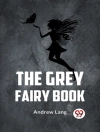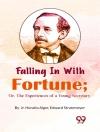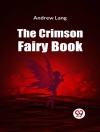In Marie Corelli’s compelling novel, ‘The Master-Christian, ‘ the author delves into profound themes of spirituality, morality, and the quest for truth within a rapidly changing Victorian society. Through a rich tapestry of lyrical prose, Corelli juxtaposes the essence of Christ-like love against the backdrop of materialism and moral decay. The narrative follows the character of the enigmatic yet compassionate Ugo, who, through his selfless acts, embodies the ideals of what it means to be a true follower of Christ, portraying a masterful synthesis of romance, philosophy, and religious commentary that encourages readers to reflect on their own spiritual journeys. Marie Corelli (1855-1924), a prominent novelist of her time, carved a niche in the literary landscape with her unique blend of mysticism and social criticism. Her passionate advocacy for spiritualism and nationalism, juxtaposed with her critique of societal norms, greatly influenced the thematic structure of ‘The Master-Christian.’ Corelli’s personal experiences and fervent belief in the power of love and redemption are intricately woven into the narrative, shedding light on her literary motivations. This thought-provoking work is essential for readers who seek to engage with deep philosophical questions while enjoying an enthralling story. Corelli’s masterful narrative invites reflection on one’s values and beliefs, making it a significant addition to the canon of late Victorian literature.
Tentang Penulis
Marie Corelli, born Mary Mackay on May 1, 1855, in London, was a prolific British novelist at the turn of the 20th century, renowned for her combination of melodramatic narrative and spiritual themes. Adopting the pseudonym Marie Corelli, she became the best-selling fiction author of her era, with a readership spanning both the literary elite and the broader public. Corelli’s literary style is characterized by a blend of romance, fantasy, and moralist undertones. ‘The Master-Christian, ‘ a notable example of her work, published in 1900, intertwines religious tension with a critique of ecclesiastical power, mirroring her interest in Christianity and spiritual redemption. Despite her popularity, Corelli was often the subject of critical derision from literary contemporaries who disparaged her flamboyant style and didactic tones. Nonetheless, her works resonated with the Victorian and Edwardian popular audience, and she enjoyed the admiration of figures as diverse as Queen Victoria, Winston Churchill, and the suffragettes. Corelli’s bold, sentimental, and often esoteric writing has left a lasting, though polarizing, mark on the literary landscape, and her prescient engagement with themes of spirituality and societal critique continues to be of interest to scholars studying the period’s popular literature.












